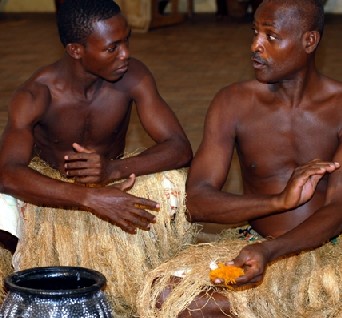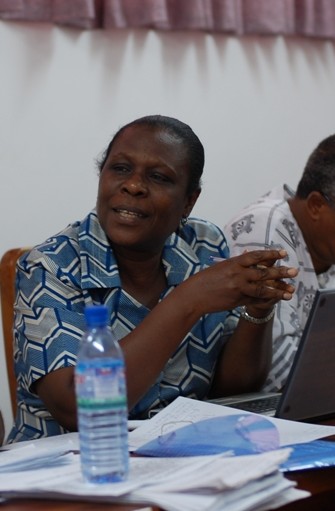|
Ghana Culture - Arts | Health | Society | Science - Education Witchcraft meets modern medicine in Ghana
Belief in supernatural forces is common in Ghana and other African countries. Death, suffering and diseases are often attributed to witchcraft. Over thirty percent of Ghanaians believe such evil forces could be responsible for the spread of HIV/AIDS, according to research data.
In 1987, a well-known project for monitoring the effects of vitamin A distribution was initiated in the Kassena-Nankana district. Health conditions among children suffering from diarrhoea, bronchial diseases and measles, were significantly improved by the programme. Furthermore, the strain on health services was eased. Initiatives supporting nurses in health care services contributed to a 60 percent reduction in child mortality rates, compared with similar regions. "Support among local chiefs and village elders is crucial when launching new initiatives," professor Knudsen points out. "After people have experienced that the science-based medical model works, they tend to accept it." Although Ghana is not among the African nations most severely affected by the AIDS epidemic, the problems there are still serious. Around three percent of the population is infected, which is relatively low compared to other countries sub-Saharan countries. But it remains a big strain on society as modern medical aid is expensive. There are ongoing discussions in Ghana about how patients should be treated, and how to cover the costs. Ghanaian researcher Phyllis Antwi, who is an experienced health administrator and teacher at the Accra School of Public Health, holds that Ghana can point at good examples on how to treat the AIDS pandemic effectively by using knowledge about local structures and beliefs. Health education in Africa has often been characterised by a top-down, Western approach. A number of campaigns have demonstrated international organisations' limited understanding of the African mindset. But Ms Antwi holds up Navrongo and Upper East Region as evidence of the success of long-term, goal-oriented efforts of the opposite approach. Mr Knudsen refers to local dance groups, like those seen in Ghana, as "an example of a better approach." These dancers had proven themselves to be very effective, especially in addressing young people. "Being a country with high illiteracy rates, Ghana has a strong oral tradition. Combining this with traditional dancing, these groups are successfully promoting health education in rural areas," Mr Knudsen says. "If one understands people's mindset, one is more likely to connect with them." By staff writers © afrol News - Create an e-mail alert for Ghana news - Create an e-mail alert for Culture - Arts news - Create an e-mail alert for Health news - Create an e-mail alert for Society news - Create an e-mail alert for Science - Education news
On the Afrol News front page now
|
front page
| news
| countries
| archive
| currencies
| news alerts login
| about afrol News
| contact
| advertise
| español
©
afrol News.
Reproducing or buying afrol News' articles.
You can contact us at mail@afrol.com









